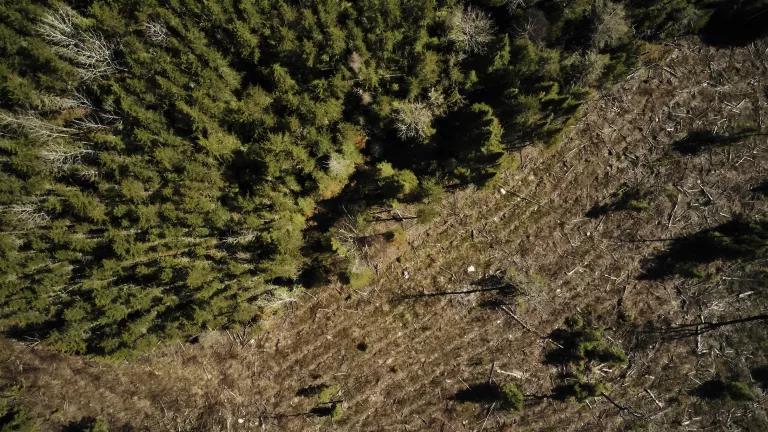Since President Obama rejected the Keystone XL pipeline for dirty tar sands oil, some pundits have claimed that Canada’s tar sands oil must be “set free.” Energy companies, they insinuate, are at the mercy of America’s shifting energy policies. Even Canadian Prime Minister Stephen Harper has taken to saying tar sands oil is “captive” to the U.S. market.
Unwanted is more like it. America imports some tar sands oil, but expanding U.S. dependence on this polluting fuel is not in our national interest. It’s a bad product, and we don’t need more of it. And energy companies angling for bigger profits shouldn’t play the victim.
America remains a trusted trade partner for Canada’s conventional oil. We buy more oil from Canada than from any other nation, including Saudi Arabia, Mexico, Venezuela, or Iraq.
But just because we buy their conventional oil doesn’t mean we have to buy their tar sands oil too. Tar sands oil is the worst of the dirty fuels. Strip mining tar sands from the Boreal Forest, separating the oil from the sand, upgrading it, and refining it uses so much energy it generates three times as much global warming pollution as conventional crude—and that’s before it gets burned in our cars and trucks.
Transporting it is also perilous. Tar sands oil is highly corrosive, and pipelines that carry it have proven more prone to spills than those for conventional crude. One tar sands pipeline operated by the same company behind the Keystone XL project experienced 35 leaks in the U.S. and Canada its first year of operation and had to be temporarily shut down by the U.S. Department of Transportation. Hauling this dirty fuel through our communities is a threat to our water, farms and ranch lands.
Backers of the Keystone XL downplay those threats, just as they downplay their long-term plans for the pipeline. Harper and other Canadian leaders like to imply it is America’s fault that Canada must look for new export markets. But make no mistake; energy companies have always viewed the Keystone XL pipeline as a link to markets beyond America.
In the Canadian press, oil companies have talked freely for months about using the pipeline to export oil to Asian markets and charge more money for the oil they do sell in the U.S.
Here’s how it would work. Existing pipelines coming out of Canadian tar sands mines mostly end in the U.S. Midwest. By bringing tar sands oil to the “Foreign Trade Zone” in Port Arthur, Texas, companies can ship it anywhere in the world. Indeed, companies get incentives to export from there. By diverting Canadian oil that would otherwise go to the Midwest, TransCanada has admitted the pipeline would increase the price Americans pay for Canadian oil by $3.9 billion.
Canada has its own coastline is a lot closer to Alberta than the Gulf of Mexico. But 135 First Nations and thousands of Canadian residents have successfully fought off a tar sands pipeline through British Columbia for years.
They don’t want a pipeline running through their communities any more than residents of South Dakota, Nebraska, or Texas do. We don’t blame them.
Prime Minister Harper and his fellow leaders have it wrong: tar sands isn’t captive, it doesn’t allow us to move towards the clean energy pathway that we need. There are reserves of arsenic and radon scattered all over the world, and one could say those are held captive too because they hard to get to market. But the truth is that no one wants them, and they should stay right where they are. The same is true for tar sands oil.


